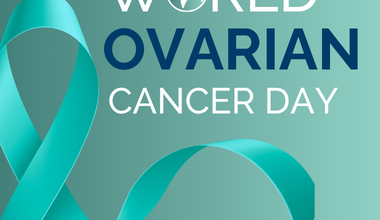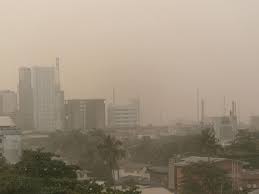Acne Awareness: 5 Takeaways on Living With Acne

One of the immutable gateways of puberty that everybody goes through is the struggle with acne. One year you’re a child with a chubby oily face and the next you’re battling with breakouts of pimples and blackheads. From that moment on, acne breakouts become a huge part of your life. They proceed to affect you physically, financially and even psychologically. With the rise and boom of skincare in recent years, acne awareness has more than ever, taken a front seat, with countless brands, websites, blogs and online communities dedicated to it’s management. June was Acne Awareness month, so in that spirit, here are 5 takeaways to help in your acne journey:
1. Know your acne type
A common myth is that acne occurs due to uncleanliness. Others suggest it might be due to the excessive use of cosmetic products. This is not necessarily the case, as acne is caused by clogged pores or follicles resulting in pimples on the skin. The cause of these clogged pores range from bacterial to fungal to hormonal causes. These causes can be indicated by the areas in which the acne is predominantly located, (e.g. hormonal acne typically appears in the T-zone: forehead, nose, and chin) and also from inflammatory or non inflammatory signs. It is very important to note the cause of your acne in order to guarantee the effectiveness of the regimen you intend to combat it with. Bacterial medications have zero effect on fungal acne and vice versa. Hormonal acne is dependent on hormonal changes and thus should be managed accordingly.
2. Know your actives
The rise of skincare in the beauty industry has led to a wide array of products hitting the markets to satisfy consumer demands. From the “glass skin” allure of Korean skincare to the professionally handled chemical peels to highly clinical dermatological procedures, the market is saturated with products at every level of demand. However there are certain active ingredients one must note that are required to combat acne problems:
- Actives like Beta Hydroxyl Acids (BHAs e.g. salicylic acid), retinoids, tretinoin, clindamycine, niacinamides etc focus on mitigating break-outs
- Alpha Hydroxyl acids (AHAs e.g glycolic acid, lactic acid), Azelaic Acids, Kojic Acid, Alpha Arbutin and Hydroquinone combat hyperpigmentation
- Oil or water based moisturiser, hyaluronic acid and natural oils keep the skin hydrated and plump, and should be chosen depending on the skin type
- Sunscreens with an SPF (sun protection factor) of at least 60 offer protection from the harsh ultraviolet rays of the sun
3. Set the pace
Acne can be annoying or debilitating depending on which type you’re struggling with . This can lead to many pitfalls while trying to keep it under control. Using too many products at once can cause more harm than good. Using products at a frequency too high or too low than prescribed can also lead to a myriad of adverse effects. Following a tested and trusted routine is your best bet. Infusing your routine with as many actives as your skin can comfortably tolerate is also very important. Sunscreens are an absolute necessity to improve the efficacy of actives, and offset sun damage. It might all seem a little overwhelming, but with right pace and considering affordability, accessibility and efficacy of products, it can be done.
4. Seek expert advice
Since acne breakouts are an almost ubiquitous experience, seeking expert advice may be too far-fetched an option for many. However, expert advice is highly recommended as this will help you skip the major pitfalls that are inevitable due to lack of proper information. The knowledge of different types of acne and different types of actives to combat them in different routines is not always plain to the layman. Getting a consultation session with a skilled professional who will assess your situation and offer the necessary prescription will speed up the management process with much less worry involved. It could even help in the early diagnosis of any malignant conditions.
5. You are not your acne
As more research continues on acne in general, it has been reported that acne is not only limited to people undergoing puberty and could in fact persist until much later in life. With this reality comes the unavoidable acne struggles of many. Factors like skin type, hormonal surges, stress and even autoimmune disorders could predispose to acne breakouts for life. Thus, it’s highly important to normalise and embrace acne as part of living. Acne management should be treated like a normalcy. No one should have to endure physical or psychological harm from going through a natural body experience. Skincare routines should be treated like wellness routines and not miracle solutions.
Acne awareness month has ended but for many of us, living with acne hasn’t. Whether it’s once-in-a-while breakouts or a signature face-full of pimples, acne can be annoying to deal with. Hopefully with the right routine you can stave off some of those spots, or cure your acne completely. But even if you don’t, there’s more to life than the appearance of your face. I really hope you can see that the next time you look in the mirror.
Sa’eedah Hussein


